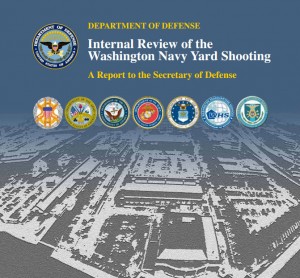5-plus years for Illinois man in military secrets case (AP)
A federal judge on Monday sentenced a former employee of a New Jersey-based defense contractor to more than five years in prison for taking U.S. military technology trade secrets to his native China, ignoring the man’s contentions that it was an error in judgment and not done with wrongful intent.
Sixing Liu, a legal permanent resident who has lived in the U.S. for 19 years, told U.S. District Judge Stanley Chesler that “I did not break the law” and that political factors may have been involved in his prosecution.
Chesler responded emphatically.
“This is not a political prosecution,” he said before sentencing Liu to 70 months in prison.
“This case is about you violating the obligations that were clearly placed upon you, that you knew about and that you clearly understood. As you sit here today, you have no one to blame but yourself.” . . .
. . . . Liu worked for Space & Navigation, a division of New York-based L3 Communications, in 2009 and 2010 as a senior staff engineer.
He was arrested at his Deerfield, Ill., home in March 2011 and accused of taking restricted military data and presenting them at two conferences in China.
Liu was found guilty last fall on six counts of exporting defense data without permission plus separate counts of possessing stolen trade secrets and lying to authorities.
The projects Liu’s company worked on included technology for rocket launchers, mobile howitzers and missiles.
Prosecutors said during trial that Liu took a personal laptop computer to conferences on nanotechnology in Chongqing in 2009 and Shanghai in 2010 and, while there, gave presentations that described the technology he was working on.
That violated U.S. laws that prohibit exporting defense materials without a license or approval from the Department of State, prosecutors said.
Thousands of company files were found on his computer when he arrived at Newark Liberty International Airport in 2010, prosecutors said.
Assistant U.S. Attorney L. Judson Welle called Liu “a serial thief” and urged Chesler to impose a sentence that would send a message to “any trusted insider with access and the ability to walk out the front door of his U.S. company with a hard drive.”
The government had sought a minimum sentence of eight years. . . . (read all)
Chinese citizen sentenced in military data-theft case (Washington Post)
Measured in millimeters, the tiny device was designed to allow drones, missiles and rockets to hit targets without satellite guidance.
An advanced version was being developed secretly for the U.S. military by a small company and L-3 Communications, a major defense contractor.
On Monday, Sixing Liu, a Chinese citizen who worked at L-3’s space and navigation division, was sentenced in federal court here to five years and 10 months for taking thousands of files about the device, called a disk resonator gyroscope, and other defense systems to China in violation of a U.S. arms embargo.
The case illustrates what the FBI calls a growing “insider threat” that hasn’t drawn as much attention as Chinese cyber operations.
But U.S. authorities warned that this type of espionage can be just as damaging to national security and American business.
“The reason this technology is on the State Department munitions list, and controlled . . . is it can navigate, control and position missiles, aircraft, drones, bombs, lasers and targets very accurately,” said David Smukowski, president of Sensors in Motion, the small company in Bellvue, Wash., developing the technology with L-3. “While it saves lives, it can also be very strategic. It is rocket science.”
Smukowski estimated that the loss of this tiny piece of technology alone could ultimately cost the U.S. military hundreds of millions of dollars. . . (read all)
Former N.J. man sentenced to nearly 6 years for taking military data to China (New Jersey Star-Ledger)
Former Morris County man draws six years in prison for exporting U.S. military secrets to China (North Jersey)
“America is a global leader in the development of military technologies and, as such, it has become a leading target for the theft and illicit transfer of such technologies. These schemes represent a threat to our national security. The intelligence community has assessed China to be among the most aggressive collectors of sensitive U.S. information and technologies and our criminal prosecutions across the country reflect that assessment.”—John Carlin, acting assistant attorney general for national security
From Sept 2012:
Stole Trade Secrets From Morris County, N.J., Company
NEWARK, N.J. – A federal jury today convicted a former employee of a New Jersey-based defense contractor of exporting sensitive U.S. military technology to the People’s Republic of China (PRC), stealing trade secrets, and lying to federal agents, U.S. Attorney Paul J. Fishman announced.
Sixing Liu, a/k/a, “Steve Liu,” 49, a PRC citizen who had recently lived in Flanders, N.J., and Deerfield, Ill., was taken into custody following the verdict, based on risk of flight considerations. Sentencing before U.S. District Judge Stanley R. Chesler is scheduled for Jan. 7, 2013.
“The jury found that in order to promote himself, Liu took highly sensitive defense information and trade secrets to China, violating the rules of his company and the laws of this country, and then lied about it upon his return to the United States,” U.S. Attorney Fishman said. “We will not tolerate the exploitation of this country’s opportunities through the theft of our secrets.”
“This specific investigation is troubling on many levels,” FBI Special Agent in Charge Michael B. Ward said. “Mr. Liu helped develop technology critical to our military, then took a computer with that information on an unauthorized trip to China to present at a conference sponsored by the Chinese government. The United States spends billions of dollars each year on research and development, and this ‘intellectual capital’ is very attractive to others. If they are able to acquire this research, they can save billions and quickly develop their own products to compete against the United States, be it in the world economic market or on the battlefield.”
“Exporting military weapons and technical data and the theft of sensitive technology in violation of the Arms Export Control Act, are serious crimes with global consequences,” Andrew McLees, special agent in charge of Immigration and Customs Enforcement, Homeland Security Investigations (ICE-HSI) in Newark, said. “Illegal foreign procurement networks continue to threaten our safety and this conviction reinforces that HSI has no tolerance for those who try to undermine our nation’s safety and security.”
“This arrest demonstrates the determination of Customs and Border Protection’s frontline officers, who work closely with our law enforcement partners to safeguard the American public from potential threats,” Robert E. Perez, Director Field Operations, for CBP New York, said.
The jury convicted Liu of nine of the 11 counts in the Second Superseding Indictment with which he was charged, including six counts of violating the Arms Export Control Act and the International Traffic in Arms Regulations, one count of possessing stolen trade secrets in violation of the Economic Espionage Act of 1996, one count of transporting stolen property in interstate commerce, and one count of lying to federal agents. The jury acquitted Liu on two counts of lying to federal agents.
According to documents filed in the case and evidence presented at trial:
In 2010, Liu stole thousands of electronic files from his employer, L-3 Communications, Space and Navigation Division, located in Budd Lake, N.J. The stolen files detailed the performance and design of guidance systems for missiles, rockets, target locators, and unmanned aerial vehicles. Liu stole the files to position and prepare himself for future employment in the PRC. As part of that plan, Liu delivered presentations about the technology at several PRC universities, the Chinese Academy of Sciences, and conferences organized by PRC government entities. However, Liu was not charged with any crimes related to those presentations.
On Nov. 12, 2010, Liu boarded a flight from Newark Liberty International Airport to the PRC. Upon his return to the United States on Nov. 29, 2010, agents found Liu in possession of a non-work-issued computer found to contain the stolen material. The following day, Liu lied to agents of the Department of Homeland Security about the extent of his work on U.S. defense technology, which the jury found to be a criminal false statement.
The U.S. Department of State’s Directorate of Defense Trade Controls later verified that several of the stolen files on Liu’s computer contained export-controlled technical data that relates to defense items listed on the United States Munitions List (USML). Under federal regulations, items and data covered by the USML may not be exported without a license, which Liu did not obtain. The regulations also provide that it is the policy of the United States to deny licenses to export items and data covered by the USML to countries with which the United States maintains an arms embargo, including the PRC.
The jury heard testimony that Liu’s company trained him about the United States’ export control laws and told him that most of the company’s products were covered by those laws.
After the verdict, Judge Chesler ordered Liu taken into custody, citing the penalties Liu faces, his ties to the PRC, and the lack of an extradition treaty with the PRC, among other reasons.
Liu faces the following maximum penalties, per count:
• Export violations – 20 years in prison, $1 million fine
• Stolen trade secrets violation – 10 years in prison, $250,000 fine
• Interstate transportation of stolen property – 10 years’ in prison, $250,000 fine
• False statement – five years in prison, $250,000 fine
U.S. Attorney Fishman credited special agents of the FBI, under the direction of Special Agent in Charge Ward; special agents of ICE-HSI under the direction of Special Agent in Charge McLees; and officers of CBP, under Director of Field Operations Perez, for the investigation leading to today’s verdict.
The government is represented by Assistant U.S. Attorney L. Judson Welle of the United States Attorney’s Office’s National Security Unit and Assistant U.S. Attorney Gurbir S. Grewal of the United States Attorney’s Office’s Economic Crimes Unit, both in Newark. The prosecution received valuable support from attorneys of the U.S. Department of Justice’s National Security Division, Counterespionage Section.












